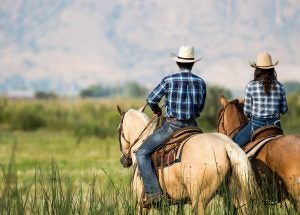I don’t imagine that a lot of rural folks spend much time on Reddit — the massive community forum website that long called itself, “The front page of the Internet.” So when a user posted the question “Why are rural areas more conservative?” to the subreddit r/NoStupidQuestions, there was a bit of wariness that set in before I clicked to open the thread. Few topics that I come across can be so divisive, and I braced myself for an onslaught of terms like “rednecks,” “God and guns,” and “uneducated.”
And if you ever thought such a question has a straightforward answer, you’ve deceived yourself. It’s a highly layered explanation, and unless you’ve lived in both worlds and experienced the highs and lows of each, you may never fully appreciate why the passions on either side are so intense.
It was with a bit of surprise that the top comment in the thread recognized the nuance of the differing urban/rural perspectives and gave a reasoned and well thought-out reply.
Both urban and rural residents have things about their communities to celebrate and things that cause aggravation.
In cities, it’s likely you’d have easy access to museums, theaters, institutions of higher education, and countless retail locations, but you’d also have congestion, pollution, high crime, and a higher cost of living.
In the country, natural beauty, wide-open spaces, a slower pace, and rugged independence are some of what this life great, but services to help the elderly or impoverished are lacking, groceries and doctors are far away, jobs are scarce, and cultural diversity is less common.
So what makes the good and the bad about rural America lean toward the conservative side of the spectrum? It largely comes down to the dependence on self, family, and the small communities to succeed — that those areas with larger populations are going to be prioritized for infrastructure improvements, maintenance projects, food security services, and health care.
And we get why that happens; the government’s tax revenue from urban areas is often used to help cover rural projects because rural communities don’t generate enough on their own, but it’s difficult to deal with that washed out shoulder on the road or a power outage for extended periods of time because of being “low priority.” There are fewer alternatives available in the country when something goes sideways.
The independence goes further, too. We don’t have buses or other public transportation near us, garbage trucks don’t pick up our trash, and no pizza places deliver to our doorsteps. A neighbor with a tractor will carve a lane in the snow on our road long before a state plow comes through. All of this breeds the pulling-yourself-up-by-the-bootstraps mentality to get almost everything done, and that individualism tends to be associated with conservative ideology.
Of course, while this may be the rural approach to daily life, urban life is much different — it too relies on a community, though its “community” numbers in the hundreds of thousands or millions of people rather than just the neighbors down the road. The way city life functions, from traffic to socializing and finance to policing, it sounds a lot like organized chaos. But that makes for a unique set of problems that rural folks may not be able to relate to well.

The thesis in the Reddit comment above is that “Both groups have real issues that impact their lives in very real, very different ways. … Neither side has it worse. 99% of us share a common enemy but we’re busy fighting with each other.”
It’s almost amazing how widely liked the comment was by the broader Reddit community. But still, of the more than 750 comments since the questions was posted late Sunday, some people drove headfirst into the claims that “ignorance and insecurity” are at the crux of rural conservative thinking, or that it’s all about the “trust issues” people in rural America have with “outsiders.” Some detractors chalked it up to a lack of “proper” education.
To those people, this rebuttal comment really resonated:
“‘Be more educated’/ Doctors know how to diagnose and cure conditions. /Lawyers can represent a defendant in court./ Civil Engineers can build bridges./ Accountants know how to calculate your taxes./ Farmers know how to produce a reliable crop yield./ Why is it that one of the above people is not considered educated?”
The fact is that you can assign whatever weight you want to any of the aforementioned perspectives. Some you may agree with, some you may not, but it is heartening that such a public social media platform can have a largely peaceful and intelligent discussion on such a fiery topic. There are people out there who aren’t eager to immediately cast stones at the working classes across society.
Another user in the thread stated, “Both sides of the political spectrum at their core want the same things but have different idea’s of how to achieve it, you find if you actually talk to most people you disagree with you’ll find common ground and everyone is generally nice and willing to discuss things respectfully.”


